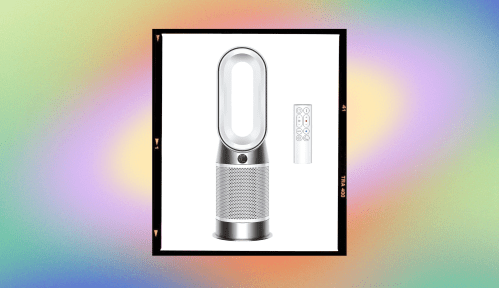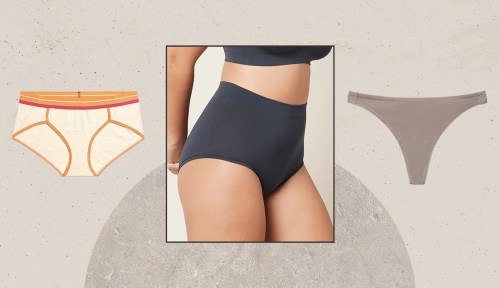Are Epsom salt baths *actually* good for you?
Here's what you need to know about the product also known as magnesium sulfate and how it should be used in your upcoming bath session.

There’s a reason you feel great after a swim in the ocean—and it’s not because of the beautiful scenery and the soothing sound of the waves (though there’s that, too): Salt water contains a hefty dose of good-for-you elements, such as sulfur, magnesium, and calcium.
“The ocean contains an abundance of minerals and when you soak in them, there is a very effective result that promotes healing and conditioning of the skin,” says Shannon Vaughn, wellness expert and founder of the holistic bath line Pursoma.
But unless you live by the beach in a warm-all-year locale, you likely aren’t jumping into the ocean to get these benefits. That’s why a growing number of wellness seekers are relaxing in Epsom salts baths. Considered to be the next best thing to lounging in salt water, Epsom salts are also known to stave off soreness after especially intense workouts. But is all the cheerleading warranted?
Read on for the 411 on Epsom salts

Epsom salts = magnesium
Despite the name, Epsom salts aren’t actually made up of salt, nor do they contain the same minerals found in seawater. That’s why it’s really not a substitute for the real thing, Vaughn says. “There’s a big difference between pure sea salt soaks and Epsom salt soaks,” she says, noting that true sea salt is loaded with many minerals while Epsom salt is just magnesium sulfate.
Despite its name, Epsom salts aren’t actually made up of salt nor does it contain the same minerals found in seawater.
“Sea salts contain magnesium as well as many other mineral salts like potassium, calcium chloride, sodium, and bromide,” says Francesca Fusco, MD, a dermatologist at Wexler Dermatology in New York. “For patients with inflammatory skin disorders like eczema, a soak in Dead Sea salts may reduce inflammation and enhance hydration,” she continues, citing a clinical trail published in the International Journal of Dermatology.
Humans do need magnesium, thus the popularity of Epsom salts. “Magnesium is a critical component in over 300 biocellular processes,” explains Dendy Engleman, MD, a dermatologist in NYC. “We used to get plenty from our diets, but years of over-farming have lead to a dietary depletion. A great number of the population is deficient in magnesium, so we need to get it from external sources.”
Read the labels
When it comes to magnesium sulfate, how it’s manufactured and sourced is important to determine its efficacy. “When we started to research the sourcing of magnesium, we learned a lot is chemically treated,” notes Vaughn, adding that some Epsom salts on the mass market are refined in unnatural ways.
So make sure to do some major label decoding (if you’re thinking “Ugh, more of this?” Yes. Always read the labels!). Any product sold under the term “bath salts” can be misleading, because although Epsom salts or magnesium sulfate may be included, other potentially iffy ingredients could possibly be in the mix, too.
Vaughn, instead, suggests looking for magnesium bath flakes or any product with magnesium chloride as the first ingredient instead. (Chloride is more easily absorbed by the body and is closer to the kind found in real seawater so it’s more efficacious, Vaughn says.)
Why soak in it?
Epsom salts are known to be a big-time wellness assist when taken in supplement form as well as absorbed topically. “Magnesium helps reduce inflammation caused by E-selectin, which is a molecule that causes inflammation in the endothelial layer of the skin,” explains Dr. Engelman. “As inflammation is the root of most things evil in health, magnesium helps to lower inflammation, improving skin health, function, and appearance.”
And according to Dr. Engelman, soaking in magnesium is the most efficient way to reap the benefits. “It is a little-know fact that Magnesiun is much better absorbed transdermally rather than through the GI tract,” she says.
“My favorite reasons for using magnesium in the bath is for stress relief, soothing joint pain and sore muscles, and improving sleep,” says Jessa Blades, a natural beauty expert makeup artist and herbalist.
Quality is everything
Like with most things involving what we put in and on our bodies, common-sense caution is advised. If you’re buying scented bath salts, look for organic essential oil-spiked ones and be wary of the term “fragrance,” says Blades. Often that means synthetic ingredients are hiding there, she says. “Also, avoid anti-caking agents (often used to prevent granules from sticking together) and make sure you can pronounce all the words on the ingredient label.”
Magnesium has been shown to be beneficial for a number of ailments, but the quality of the mineral and the products you’re buying really matters.
Find out all the other ways you can cover your body with magnesium—like these beauty products laced with the healing mineral.
Sign up for the Well+Good SHOP Newsletter
Get exclusive deals on wellness, beauty, fitness, and food products that have been hand-picked by our editors.
Got it, you've been added to our email list.









